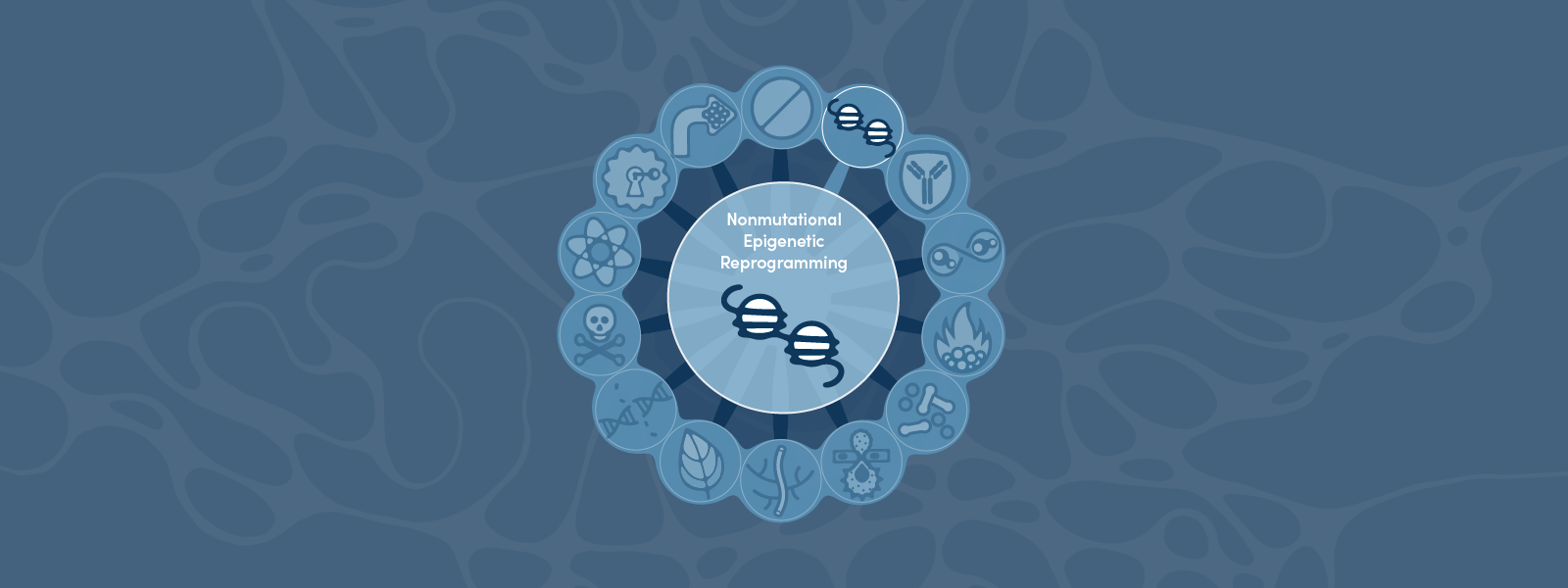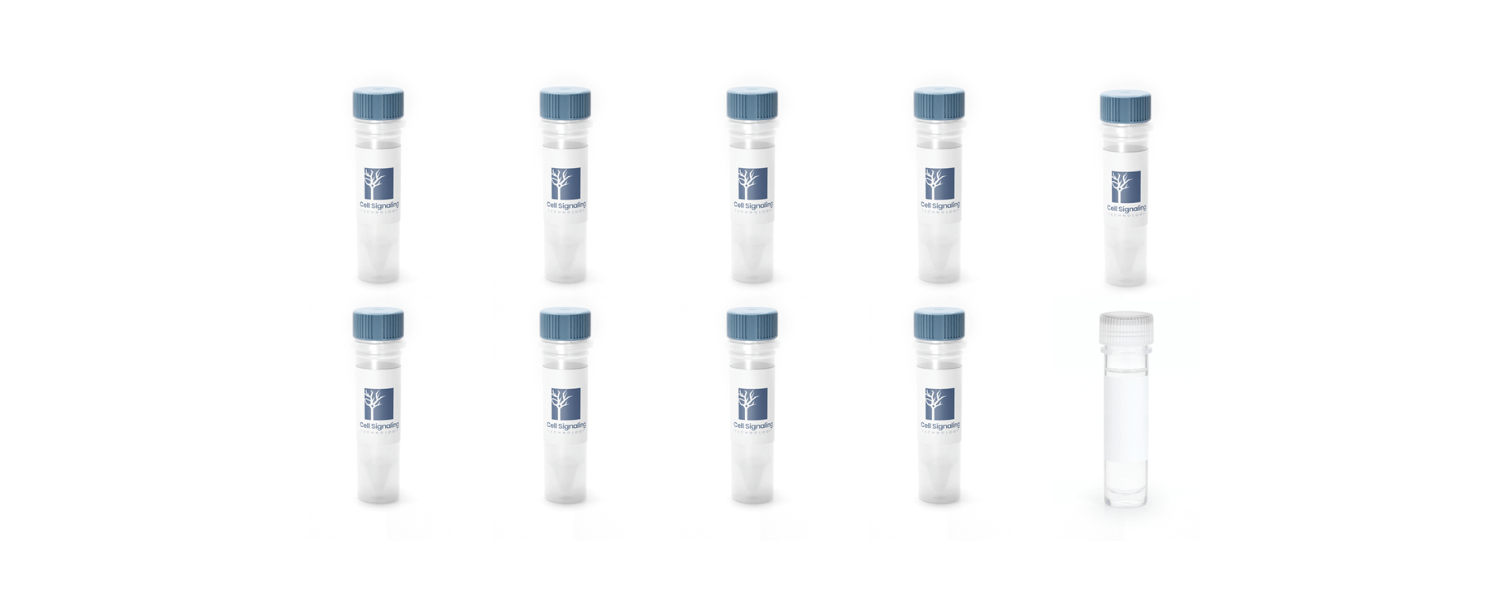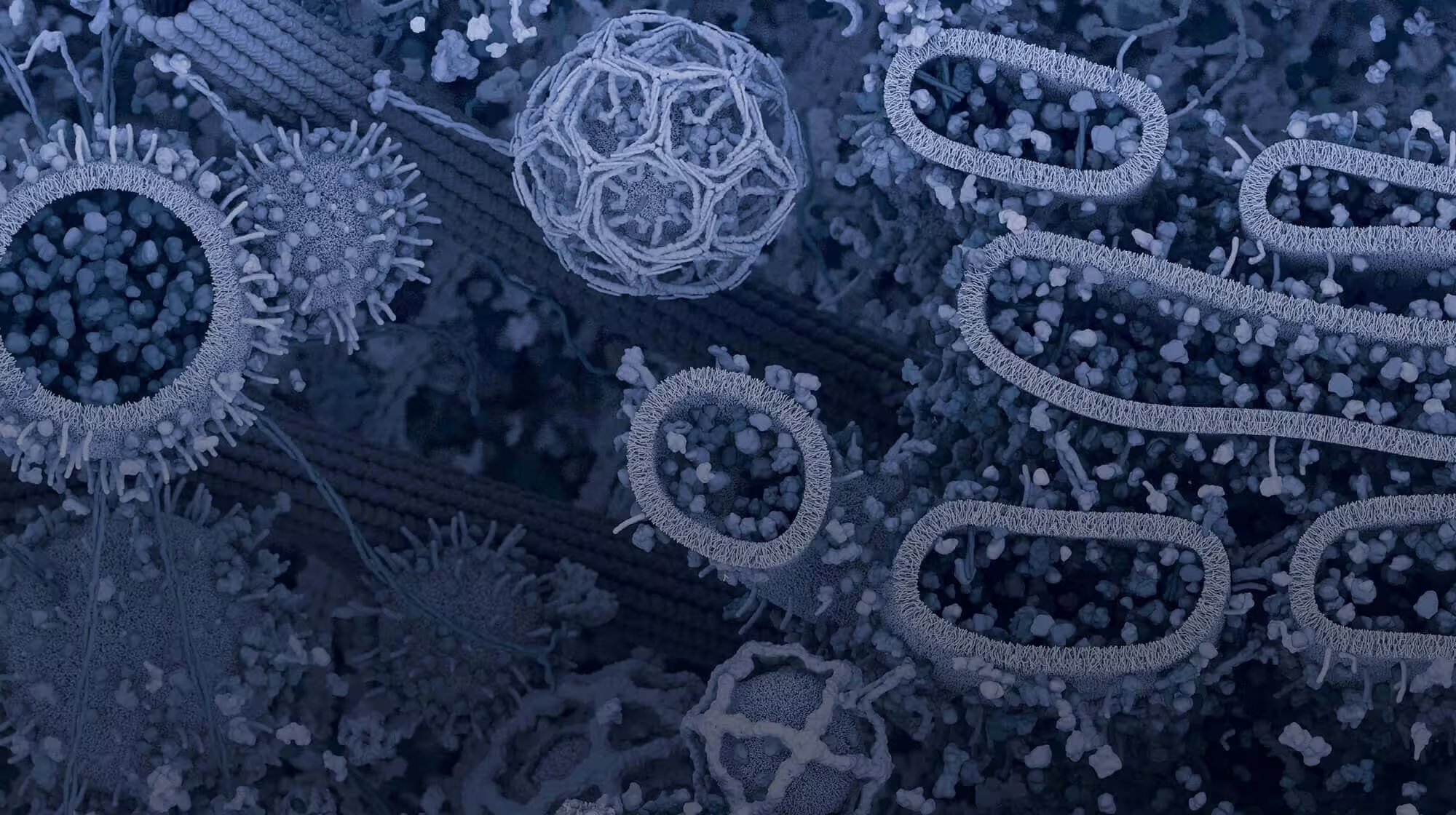This year, CST turns 25. As we celebrate this significant milestone, we’re also reflecting on how the research reagent industry has changed in the past quarter century, the role CST played in bringing about innovation, and what the future might hold.
Let’s step back into October of 1999. The internet was in its infancy, Y2K was just around the corner, and mobile phones were starting to take off. And for scientists studying biological systems in the lab, research tools looked different than they do today—very different.
Company Timeline: The History of CST
“At the time, researchers were using ATP loaded with radioactive 32P to label protein phosphorylation sites,” reflects Roberto (Roby) Polakiewicz, Chief Scientific Officer at CST. “We had to shield ourselves from beta particles and use a dosimeter to monitor radioactivity levels. Experiments were conducted in designated areas; you couldn’t just go to your bench and run a gel. Labs had to have special government permits and proper storage, cleaning, and disposal methods. And if there was ever an accident—like if a test tube was dropped, which was inevitable from time to time—parts of the lab would shut down for days.”
Needless to say, experimentation was cumbersome. Labeling using 32P was the prevailing method not only for studying post-translational modifications (PTMs), but also for DNA detection. The process was labor-intensive, expensive, and dangerous, but it was the best way researchers had to peer inside cells and study protein interactions.
“[CST founder and CEO] Michael Comb’s lab was studying how cells communicate with one another; how cellular signals modify proteins to turn them ‘on’ or ‘off’, and the mechanisms—the pathways—through which these signals regulate cellular behaviors. But at the time, it was difficult to do,” Roby continues. “However, Michael knew antibodies could be created to measure the phosphorylation of specific protein sites, and had the idea of generating them in a high-quality and robust way for scientists looking to study signaling.”
 Some of the early employees of CST, which began out of Michael Comb’s lab at Mass General Hospital, and later, NEB. Many of the original researchers are still with the company today.
Some of the early employees of CST, which began out of Michael Comb’s lab at Mass General Hospital, and later, NEB. Many of the original researchers are still with the company today.
Michael and the early CST team, many of whom worked with him at Mass General Hospital, and later, New England Biolabs (NEB), began developing phospho antibodies relevant to key signaling pathways. Critical to the project was the late Yi Tan, PhD, who would later become the vice president of antibody development at CST. While the group’s initial intent wasn’t large-scale commercialization, the quality of antibodies they produced and the critical need they addressed resulted in high demand for their reagents.
Tony Wood, Sr Director of Product Design & Strategy at CST, picks up the story: “I was a postgraduate student around this time, and our understanding of cellular signaling pathways was still in its infancy, so the research was painstakingly slow. And that’s when Cell Signaling Technology came onto the scene. CST transformed the field by providing access to technology for quickly and easily studying PTMs, and the research just took off. It was an exciting time.”
What CST offered was a breakthrough: Scientists could now study mechanistic biology in a way that was quick and easy, and at a price that was affordable. The first product? Phospho-p44/42 MAPK (Erk1/2) (Thr202/Tyr204) Antibody #9101, which has been cited in over 8,000 scientific publications at the time of the writing of this post.

|

|
Immunofluorescent analysis of NIH/3T3 cells either U0126-treated (left) or PDGF-treated (right) and labeled with Phospho-p44/42 MAPK (Erk1/2) (Thr202/Tyr204) Antibody #9101.
Initially known for antibodies to detect PTMs, fast forward to today, and CST now offers over 10,000 stringently validated antibodies and high-quality reagents for studying everything from metabolism to neuroscience and fibrosis to epigenetics. We’re proud to be the supplier researchers choose most often when they need antibodies they can trust, which is why we have more citations per antibody than any other company.
|
Steve Gygi, PhD |
"I've been on lots of different scientific advisory boards…and everyone always says the same thing: ‘How can we be more like CST as far as the way the antibodies are? [CST’s] validation, it's just unbelievable. They put so much effort into the validation of their antibody that you can trust them.'" |
|
But our story doesn't end there. In the past quarter century, we’ve continued to make contributions to the development of antibody technologies and collaborated with leading researchers to make significant scientific discoveries that have moved science forward.
And we’ve done it all while setting the standard for sustainability and environmental stewardship in the life science industry. There’s more to tell.
Blog: CST Becomes the First Life Science Company to Join 1% for the Planet
Where Scientific Rigor Meets Responsible Science
You might have heard us say that we’re a different kind of life science company—one founded, owned, and run by active research scientists. You might have also heard us say we’re committed to not just doing good science, but also to just doing good.
But what, exactly, does that mean?
At a high level, it means we value communities both large and small, from the microscopic details of vesicle trafficking within cellular neighborhoods to the complex web of interactions driving climate change on a global scale. It means we understand all things are interconnected, and as we work to develop tools to aid in the effort to understand and cure human disease, we need to do so in a way that preserves a healthy planet for future generations, too.
First, let’s explore what “good science” means to us as researchers. At our core, we’re a group of passionate scientists who are beyond excited about the potential discoveries waiting on the other end of that antibody paratope.
“I initially joined Michael’s lab at NEB as a researcher,” continues Roby. “And when we started CST, my job was to establish a research program to continue innovating. All these years later, innovation continues to be a core element of our culture that still defines who we are.”
A staunch advocate of scientific reproducibility, Roby and the founding members of CST ingrained in the company a culture of research excellence that still permeates every department today. This is where our commitment to product quality comes from.
|
|
"The…solution [to the reproducibility crisis] is proper initial validation of antibodies... The biggest investment in developing a good monoclonal antibody is the extensive work needed to validate specificity and sensitivity across all relevant applications.” |
Roberto D. Polakiewicz |
“As scientists, we understand that science can be both very rewarding and very frustrating,” says Roby. “Any experimental scientist will tell you that the majority of experiments fail. And when they do, the first things you ask yourself are ‘Why?’ and ‘How can I redesign my experiment to ask the same question again in a different way?’ But among the first things you need to do is make sure your reagents are right.”
When validating a potential new antibody clone, we’re driven by this fundamental understanding of how research happens, and we treat antibody validation like any other scientific pursuit. We know that your experiments aren’t “one size fits all,” so we put our antibodies through every test we can think of. Since no two samples, applications, or targets are the same, no two CST antibody validation campaigns are the same, either. We consider the target’s biological context, the specifics of the application, and the sample types we think you’re likely to work with to design a unique set of experiments to validate antibody specificity in each intended application independently. Our application-specific approach is why, when we say an antibody is validated for a given application, we know it’s going to work the first time and every time.
“We validate 100% of our antibodies in-house, and we guarantee that they’ll work in the assay they’re intended for,” says Katherine (Katie) Crosby, Sr Director of Antibody Applications & Validation. “Our customers tell us that when they see that vial with the ‘CST blue’ cap, they know it means it’s an antibody they can really trust.”
It’s our mission to ensure that when you use a CST antibody, poor reagent quality will never be the reason an experiment fails. We focus on the science behind the reagents, so that researchers can focus on the science behind their discoveries.
With this commitment in mind, our scientists regularly attend industry conferences and have authored more peer-reviewed papers than those of any other antibody company, by far—over 350 at the time of writing this.
“Our scientists are curious people, so we don’t stop at just making antibody tools,” says Sean Beausoleil, Sr VP of Research at CST. “We also apply these tools to push the boundaries of what’s been discovered. We allocate a fair amount of our resources to leveraging our own antibodies to answer burning questions in science.”
|
Dr Michael Yaffe |
"CST has been a pioneer since the beginning… One of the things that was most remarkable about CST was they weren't just making reagents. They were actually doing their own research. To this day, I think this is something that sets CST apart.” |
|
When CST scientists develop an antibody to a promising new target, we collaborate with leading researchers to use our proprietary tools to drive research forward. From contributions like our discovery of the role of ALK/ROS in non-small cell lung carcinomas1 to the identification of thousands of novel PTM sites,2,3,4 you won’t ever find us just sitting on the sidelines. We’re continually pushing the envelope and pioneering new research capabilities. Over the years, this has included cutting-edge breakthroughs like our revolutionary PTMScan® proteomics technology, first-to-market CUT&RUN reagents, the SignalStar® Multiplex IHC assay for spatial biology, and our award-winning Anti-CAR linker antibodies for CAR-T research.
Blog: The Kinase Library: How Big Data Can Help Identify Novel Kinase Drug Targets
We also curate and maintain the PhosphoSitePlus® website, a free bioinformatics resource of PTMs in proteins. Funded in part through NIH grants, the website provides researchers with comprehensive information on over 130,000 experimentally observed PTMs. More recently, CST worked with Professors Lewis Cantley, Michael Yaffe, and Benjamin Turk to develop and host The Kinase Library on PhosphoSitePlus, a revolutionary prediction tool that uses a powerful algorithm to predict the kinases most likely to modify a particular protein substrate.
Getting Back to Nature—and Community
Simultaneous to our pursuit of scientific rigor, we’re also doing as much as we can to reduce our environmental impact and protect the planet. We recognize that research is resource-intensive, so in everything we do, we consider how it will affect the environment and look for ways to mitigate our environmental footprint. As part of this pursuit, we’ve committed to achieving net-zero emissions by 2029, and we’re always looking for innovative ways to integrate sustainability into our research practices.
|
|
Julianna LeMieux, PhD |
"CST has been giving back and prioritizing sustainability from the time the company started. It consistently makes the Boston Business Journal’s Top 100 Most Charitable Companies in MA—an unusual achievement for a private, family-owned company.” |
For example, we’ve installed solar panels; implemented composting and single-stream recycling; switched to free, plant-based lunches for employees in our cafeteria; reduced or eliminated the use of harmful chemicals in our labs; designed sustainable packaging and shipping practices, along with many other green initiatives. And, in 2022, we became the first life science company to join 1% for the Planet, which means we commit to donating at least 1% of our total annual revenue to nonprofit organizations working to preserve Earth’s biodiversity, mitigate climate change, and protect our planet for future generations.
Part of this effort also includes empowering future generations with the knowledge, experience, and wherewithal to promote sustainable science. In this regard, we invest in students and teachers and in STEM and green chemistry education to inspire the next generation of scientists and encourage industry-wide change for a healthier, more diverse global community. We also have robust global corporate giving programs, which include community grant initiatives, philanthropic and environmental corporate partner programs, employee donation matches, disaster relief funding, and much more.
 CST headquarters in Danvers, MA, USA, is ISO 9001 Certified and boasts an over 11,000-square-foot indoor tropical oasis, complete with a koi pond, waterfalls, and rock formations, which serves as a workspace and cafeteria for employees.
CST headquarters in Danvers, MA, USA, is ISO 9001 Certified and boasts an over 11,000-square-foot indoor tropical oasis, complete with a koi pond, waterfalls, and rock formations, which serves as a workspace and cafeteria for employees.
CEO Michael Comb said it best: “The impact of human society on the natural world is evident. As a grandfather, scientist, businessman, and member of humanity, combating climate change and the loss of biodiversity is the most pressing challenge for my generation and future generations that follow… Businesses must be more responsible and work in partnership with each other and our communities to foster inclusion and respect.”
Looking Ahead to the Next Quarter Century
When you consider the groundbreaking discoveries that have been made by researchers around the globe using CST reagents, it’s truly astounding that just 25 years ago, the study of cellular signaling was in its infancy. What once required radioactive materials, cumbersome protocols, and days of preparation can now be achieved with unprecedented precision and speed. These cutting-edge research tools have helped usher us into a new era of personalized medicine, where moonshot ideas like eradicating cancer, curing Alzheimer’s disease, or slowing down aging no longer seem so out of reach.
Our most recent innovation, InTraSeq™ Single Cell Analysis Reagents, allow researchers to peer closer at cells than ever before, for the first time enabling the simultaneous quantification of proteins and RNA at the single cell level. The result is a more complete picture of the role individual cells and cellular subpopulations play in driving disease.
Innovations such as this will undoubtedly drive the next wave of scientific discoveries, which will be achieved through the dedicated work of researchers around the world. We’re excited to continue on this journey with you, and look forward to the breakthroughs that will define the future of science for the next quarter century.
Select References
- Rush J, Moritz A, Lee KA, et al. Immunoaffinity profiling of tyrosine phosphorylation in cancer cells. Nat Biotechnol. 2005;23(1):94-101. doi:10.1038/nbt1046
- Burt RA, Dejanovic B, Peckham HJ, et al. Novel Antibodies for the Simple and Efficient Enrichment of Native O-GlcNAc Modified Peptides. Mol Cell Proteomics. 2021;20:100167. doi:10.1016/j.mcpro.2021.100167
- Stokes MP, Farnsworth CL, Gu H, et al. Complementary PTM Profiling of Drug Response in Human Gastric Carcinoma by Immunoaffinity and IMAC Methods with Total Proteome Analysis. Proteomes. 2015;3(3):160-183. Published 2015 Aug 7. doi:10.3390/proteomes3030160
- Guo A, Gu H, Zhou J, et al. Immunoaffinity enrichment and mass spectrometry analysis of protein methylation. Mol Cell Proteomics. 2014;13(1):372-387. doi:10.1074/mcp.O113.027870








/42157_chimeric%20antibody%20blog%20featured3.webp)


